Africa’s vibrant history shimmers with the stories of exceptional queens who wielded power, defied expectations, and left an indelible mark on the continent. From courageous warriors who defended their lands to wise rulers who ushered in eras of prosperity, these women shattered stereotypes and continue to inspire generations. Today, we embark on a journey to explore the lives of some of Africa’s most prominent queens, delving deep into their fascinating reigns and the legacies they left behind.
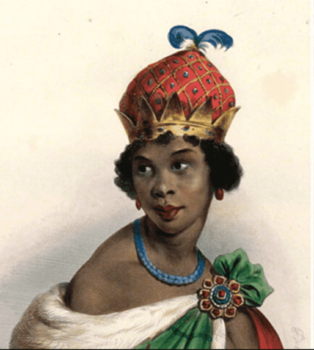
Njinga Mbandi, the 17th-century queen of Ndongo and Matamba, was more than just a ruler; she was a master strategist who outsmarted and outmaneuvered some of the most powerful empires of her time. Ascended to the throne during a tumultuous period when Portuguese colonization threatened to engulf her kingdoms, Njinga refused to succumb to foreign domination. A brilliant diplomat and military strategist, she possessed an uncanny ability to read her opponents and exploit their weaknesses. Njinga formed strategic alliances with neighboring kingdoms, such as the powerful Kongo Empire, to bolster her position. When diplomacy failed, she adopted ruthless guerilla warfare tactics, utilizing the vast African savannas to her advantage. Njinga’s highly mobile army, often incorporating women warriors, inflicted heavy losses on the technologically superior Portuguese forces, striking fear into the hearts of their commanders. Famed for her battlefield prowess and unwavering determination, Njinga even adopted a masculine persona at times, strategically utilizing the societal expectations of the era to command respect and strike fear into her enemies. Her most celebrated tactic involved setting fire to tall grasses, creating a smokescreen that obscured her movements and allowed for surprise attacks. Njinga’s reign, marked by constant struggle against colonization, solidified her reputation as a symbol of African resistance, a legacy that continues to resonate today.
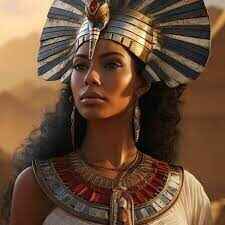
Hatshepsut, who reigned in 15th century BC Egypt, defied all conventions and shattered the glass ceiling of her time. In a period when women rarely held positions of power, Hatshepsut, the daughter of Pharaoh Thutmose I, ascended the throne after her father’s death and became the first great female pharaoh. Refusing to be seen as a mere regent ruling on behalf of her young nephew, Thutmose III, Hatshepsut assumed full pharaonic authority. She adopted the traditional pharaonic attire, complete with a royal kilt and headdress, and even sported a false beard on some official occasions to solidify her image as a legitimate ruler. Her reign, lasting over two decades, was a period of remarkable prosperity and stability. A skilled administrator and visionary leader, Hatshepsut embarked on a grand building program, commissioning magnificent temples and obelisks that continue to stand as testaments to her reign. Her most awe-inspiring project is the mortuary temple at Deir el-Bahri, a sprawling complex carved into the cliffs overlooking the Nile Valley. Hatshepsut also fostered trade, expanded Egypt’s borders through strategic alliances, and oversaw a flourishing of art and culture. Her remarkable story reminds us that leadership knows no gender and that even in ancient times, women could achieve positions of immense power and leave an enduring legacy.
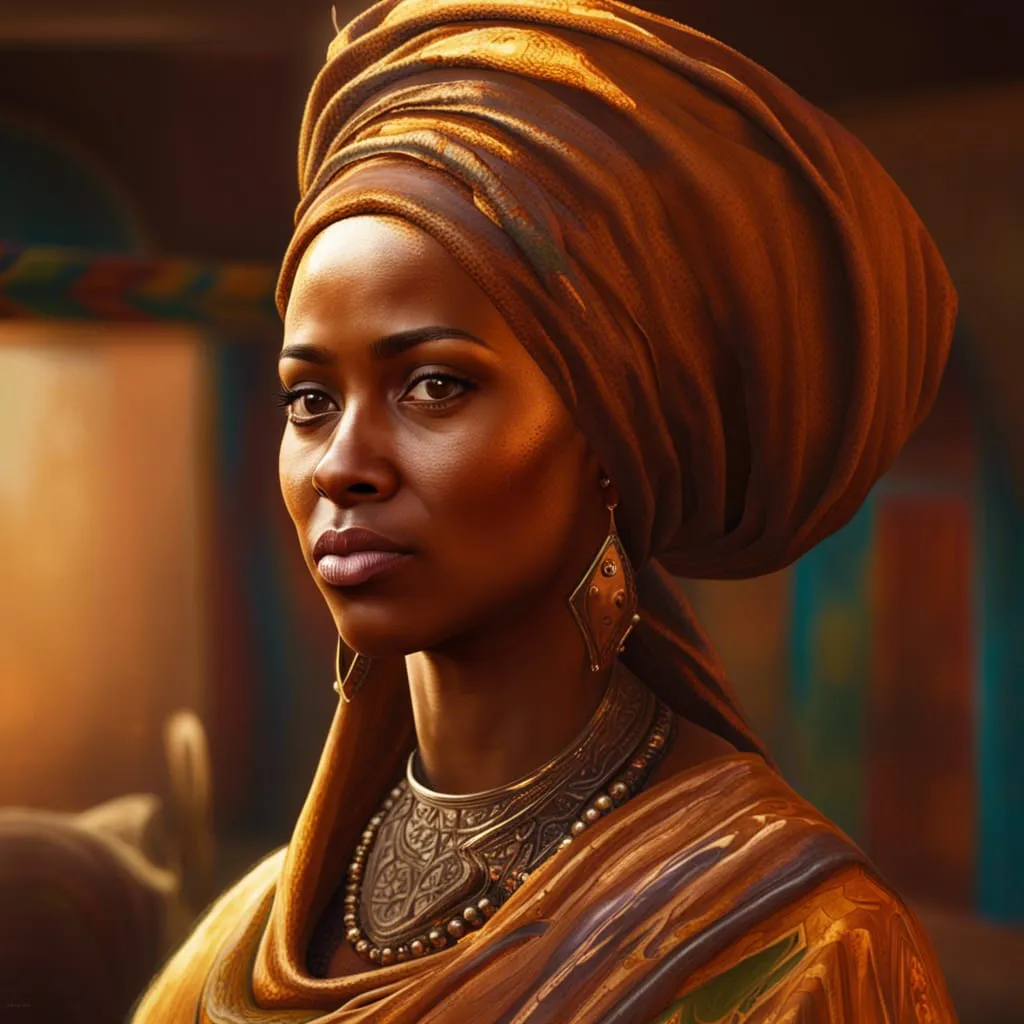
Amina, the 16th-century warrior queen of Zazzau (present-day northern Nigeria), is a legendary figure whose life is shrouded in a veil of myth and history. Renowned for her military prowess and strategic brilliance, Amina is said to have been a fearless leader who personally led her cavalry into battle. Historical accounts credit her with leading a resurgence of the Zazzau kingdom’s military power. Amina is said to have been a skilled horsewoman and strategist who employed innovative tactics, including flanking maneuvers and scorched-earth policies, to overwhelm her enemies. She is credited with expanding the territory of Zazzau considerably, incorporating new trade routes that brought wealth and prosperity to the kingdom. Amina was not just a warrior queen; she was also a patron of the arts and a shrewd administrator who ensured the stability and prosperity of her people. She commissioned the building of new cities and public works projects, fostering a thriving economy within Zazzau. Although details of her life remain shrouded in some mystery, Amina of Zaria continues to be a powerful symbol of female leadership and martial prowess in Nigerian history.
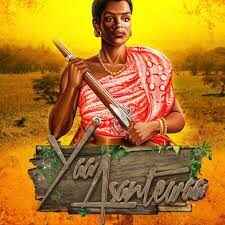
Yaa Asantewaa, the Asante queen mother in the early 20th century, exemplifies courage in the face of adversity and unwavering resistance against oppression. When the British threatened to colonize the Asante Empire, a powerful West African kingdom, in the early 1900s, Yaa Asantewaa, then in her 80s, emerged as a powerful voice against oppression. The Ashanti people traditionally held their queen mothers in high esteem, and Yaa Asantewaa possessed the wisdom, charisma, and oratory skills to rally her people. In a passionate speech that ignited a fire of resistance, Yaa Asantewaa declared, “If you refuse to go forward, I will. I old woman will carry a gun for seven years before I will let the white man take Kwamanu (Asante).” Her stirring words resonated throughout the Asante nation, uniting them in a common purpose. Leading from the front, Yaa Asantewaa defied expectations of a queen mother’s role. She inspired the Asante warriors, many of whom were farmers, to take up arms against the British invasion. The Asante army, though vastly outnumbered and outgunned, fought valiantly under Yaa Asantewaa’s leadership. Although ultimately unsuccessful in repelling the British colonizers, Yaa Asantewaa’s bravery and leadership became a powerful symbol of African resistance against European domination. Her legacy continues to inspire movements for freedom and self-determination across the continent, and her image adorns Ghana’s currency, a constant reminder of her fight for her people.
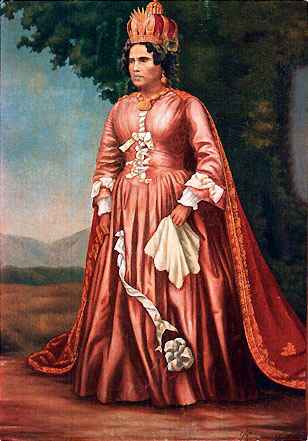
Ranavalona I, who ruled Madagascar from 1828 to 1861, was a complex and fascinating figure who steered the island nation through a period of immense change. Ascending the throne after a period of political instability, she quickly consolidated power and embarked on a series of reforms that transformed the kingdom. Ranavalona I, also known as Ranavalona the First or Ranavalona the Cruel by European powers, was a shrewd ruler who prioritized the independence and security of Madagascar. She modernized the military, establishing a well-equipped and disciplined army that included units of women soldiers. Ranavalona I implemented social reforms aimed at strengthening the monarchy and fostering national unity. She restricted European influence, fearing that it would lead to colonization, and expelled European missionaries who sought to convert the Malagasy people to Christianity. This move earned her the moniker “Ranavalona the Cruel” from European powers who felt entitled to spread their influence. However, from the perspective of the Malagasy people, Ranavalona I was a strong leader who protected their culture and way of life. She fostered a flourishing of domestic industries and implemented a policy of self-sufficiency, ensuring that Madagascar produced most of the goods it needed. Her reign ushered in a period of relative peace and prosperity for the island nation. Though her methods were sometimes ruthless, Ranavalona I’s legacy as a ruler who fiercely protected Madagascar’s independence from European encroachment remains significant.
6. Makeda, the Queen of Sheba: A Legacy Shrouded in Mystery (Ethiopia & Yemen)
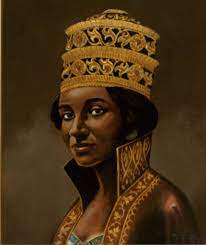
Makeda, the Queen of Sheba, is a legendary figure whose story has been recounted for millennia. While historical evidence remains elusive, her tale, woven into the fabric of both Ethiopian and Biblical traditions, underscores the deep cultural connections between Africa and the Middle East. According to Ethiopian folklore, Makeda was a wise and prosperous ruler who, upon hearing of King Solomon’s wisdom and magnificent temple in Jerusalem, embarked on a grand journey to meet him. Legends depict their encounter as a meeting of minds, with riddles exchanged and a deep respect fostered between the two rulers. Some traditions suggest a romantic connection blossomed, resulting in a son, Menelik I, who later returned to Ethiopia to claim his rightful place on the throne. This legendary lineage is a source of immense pride for Ethiopians, solidifying the Solomonic dynasty that ruled Ethiopia for centuriesWhile the extent of Makeda’s historical existence is debated, her story serves as a powerful symbol of the intellectual exchange and cultural richness that existed between different regions in ancient times. The image of a powerful African queen venturing out to meet a renowned leader from another land underscores the agency and intellectual curiosity of African rulers.
The stories of these prominent African queens are just a glimpse into the continent’s rich history of female leadership. These women, who ruled with strength, wisdom, and unwavering determination, continue to inspire generations. As we delve deeper into Africa’s past, we discover even more remarkable tales of queens who played crucial roles in shaping the destiny of their nations. Their legacies serve as a powerful reminder that women have always been at the forefront of shaping African history and culture
very interesting article